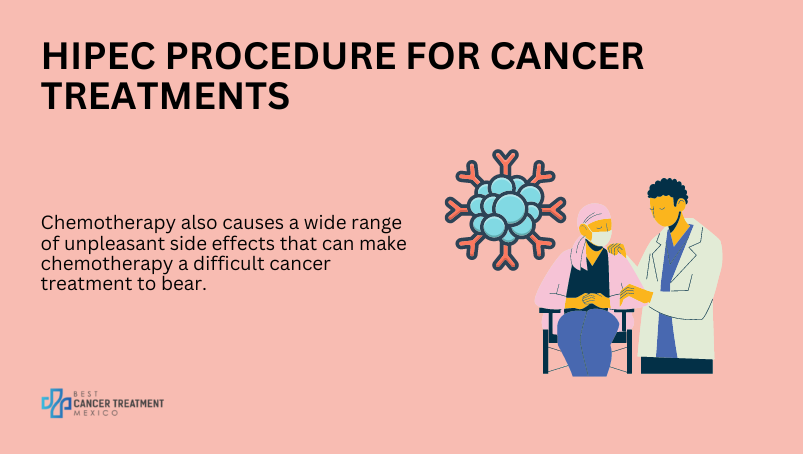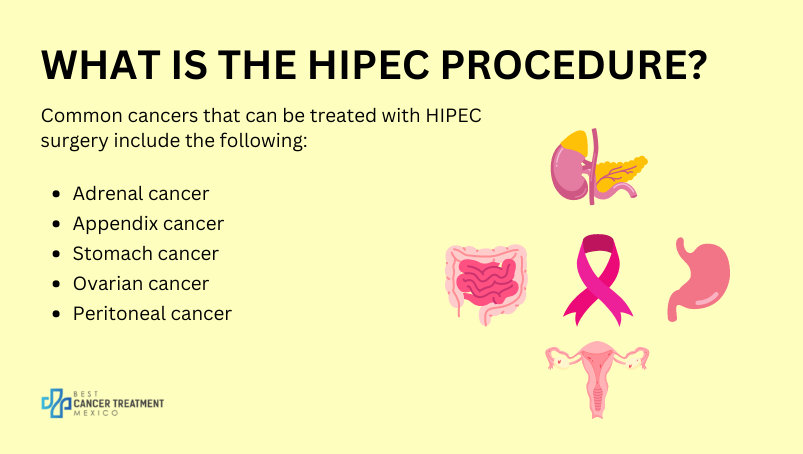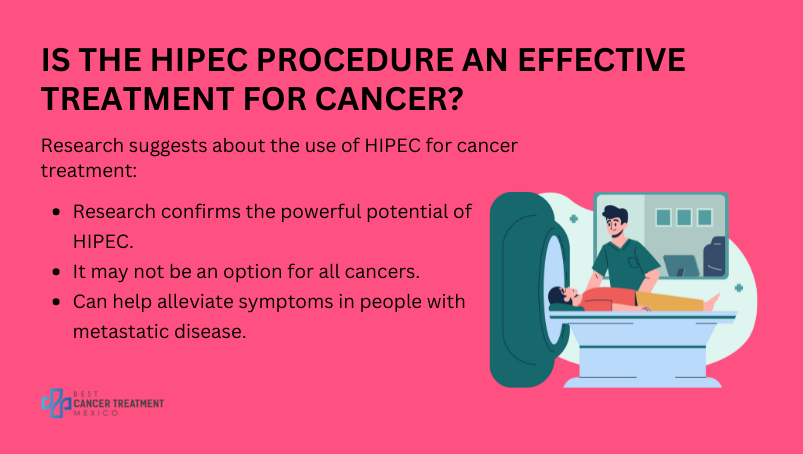
Cancer treatment options continue to emerge every day. Many of these options emerge in response to existing treatment options, like chemotherapy and radiation treatment. While these options have offered patients some benefits in the past, many cancers can become resistant to chemotherapy. On top of that, chemotherapy also causes a wide range of unpleasant side effets that can make chemotherapy a difficult cancer treatment to bear.
But what if chemotherapy could be used to treat certain kinds of cancer without all those side effects? Enter the HIPEC procedure, which uses a combination of surgery and chemotherapy to treat cancer. Keep reading to learn more.
What is the HIPEC procedure?

Hyperthermic intraperitoneal chemotherapy (HIPEC) is a surgical procedure used to treat certain kinds of cancer in the abdomen. These cancers can include metastatic cancers that have spread to the peritoneal (abdominal) region of the body, as well. Common cancers that can be treated with HIPEC surgery include the following:
- Adrenal cancer
- Appendix cancer
- Stomach cancer
- Ovarian cancer
- Peritoneal cancer
The procedure can be particularly helpful because cancers in the peritoneum (the lining of the abdomen) are notoriously hard to treat with conventional chemotherapy approaches.
The HIPEC procedure is a two-part endeavor. First, a surgeon will operate on a patient to remove as much of a tumor, or tumors, as possible.
After the surgeon removes as much tumor as possible, heated chemotherapy drugs are then administered into the peritoneal region, with the goal of destroying any remaining cancer cells. This process is called perfusion. Chemotherapy is passed through a machine to warm the chemotherapy before it enters your abdominal cavity.
Why is heated chemotherapy used in the HIPEC procedure?
Generally speaking, chemotherapy is heated before being administered because it can increase the effectiveness of the chemotherapy and has the potential to reduce the risk of side effects you experience following treatment. The practice of hyperthermia, or heating things up, for cancer treatment is not new, and has been shown to help with the treatment of cancer and tumors. This practice might be referred to as local hyperthermia treatment.
How does the HIPEC procedure help with cancer?
The HIPEC procedure uses surgery (a common treatment used to treat cancer before radiation or chemotherapy) to remove as much of a tumor as possible. The heated chemotherapy that is administered after tumor removal is designed to eliminate any remaining cancer cells, something that is impossible with traditional tumor resection surgeries.
Is the HIPEC procedure an effective treatment for cancer?

The role of the HIPEC procedure in cancer treatment has emerged as a strong option for several types of cancer patients, and has proven to be particular effective compared to other treatments. Mayo Clinic oncologists, for example, suggest that HIPEC could be potentially curative for at least a quarter of patients with peritoneal-type cancers, especially when compared to therapies like chemotherapy, which are proving to be less and less effective.
Here’s what other research suggests about the use of HIPEC for cancer treatment:
- Research confirms the powerful potential of HIPEC. One study found that HIPEC was an effective way to keep certain malignancies under control, all while producing few unpleasant side effects.
- It may not be an option for all cancers. While HIPEC has shown exceptional success for peritoneal-located malignancies, the same may not apply to other types of cancer. For example, the addition of chemotherapy administration to a surgical procedure compared to just surgery alone did not improve outcomes for patients with certain types of ovarian cancer.
- Can help alleviate symptoms in people with metastatic disease. One study found that in people with metastatic disease (meaning cancer has spread throughout the body), HIPEC procedures can be an effective palliative treatment option, or a treatment that helps alleviate symptoms.
Is the HIPEC procedure a safe treatment for cancer?
As a surgical procedure, there are necessarily risks, involved, just like with any other surgical procedure. One study also suggested that there is a need for more standard practices when it comes to performing the procedure to eliminate risks and complications.
With any type of cancer treatment, it’s important to make sure you fully understand the available treatment options and choose options that work for you. This should include talking to your doctor before starting any cancer treatment. They can help you decide which treatment options are right for you.
